As I know, we can use below to roughly convert a UNIX timestamp to a VB Date
CDate([UNIX timestamp]/ 60 / 60 / 24) + "1/1/1970"
However, the time zone and daylight information are not considered.
Time zone is not a big deal. But I cannot get the daylight bias information for a specific UNIX timestamp.
Though, daylight bias of Date 1/1 is obviously different from Date 6/1, however, for Date 3/12 or Date 11/5, the daylight bias calculation is very complex.
I tried several APIs, like “FileTimeToLocalFileTime” and “GetTimeZoneInformation” , but none of them work.
Here is my code that can not handle daylight bias
Option Explicit
#If VBA7 Then
Private Declare PtrSafe Function LocalFileTimeToFileTime Lib "kernel32" (src@, tgt@) As Long
Private Declare PtrSafe Function FileTimeToLocalFileTime Lib "kernel32" (src@, tgt@) As Long
#Else
Private Declare Function LocalFileTimeToFileTime Lib "kernel32" (src@, tgt@) As Long
Private Declare Function FileTimeToLocalFileTime Lib "kernel32" (src@, tgt@) As Long
#End If
Public Function ToUTC(ByVal datetime As Date) As Date
Dim ftLoc@, ftUtc@
ftLoc = (datetime - #1/1/1601#) * 86400000
LocalFileTimeToFileTime ftLoc, ftUtc
ToUTC = ftUtc / 86400000# + #1/1/1601#
End Function
Public Function FromUTC(ByVal datetime As Date) As Date
Dim ftUtc@, ftLoc@
ftUtc = (datetime - #1/1/1601#) * 86400000
FileTimeToLocalFileTime ftUtc, ftLoc
FromUTC = ftLoc / 86400000# + #1/1/1601#
End Function
Function getDateFromTimestamp(ByVal value) As Date
Dim t1, t2
t1 = CDate(value / 60 / 60 / 24) + "1/1/1970"
t2 = FromUTC(t1)
Debug.Print t2 - t1
getDateFromTimestamp = t2
End Function
